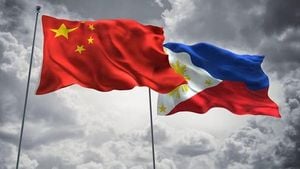On Tuesday, March 25, 2025, the state of Ceará will celebrate the Data Magna, a state holiday marking the historic abolition of slavery in 1884—significantly four years before the national Lei Áurea was signed. This day is not just a commemoration of a legal milestone but also a reflection of Ceará's deep-rooted struggle for liberty, earning it the title of "Terra da Luz." The holiday, instituted by law on December 6, 2011, by Deputy Lula Morais, showcases the social and historical significance associated with the abolition movement led by figures like Francisco José do Nascimento, known as Dragão do Mar, who played essential roles in this transformative moment in Brazil's history.
The Data Magna, translated as "Great Date," carries profound weight in understanding Ceará’s legacy within national narratives. While Ceará was leading the charge against slavery, other regions of Brazil were still firmly entrenched in it. Notably, the state freed enslaved individuals on March 25, 1884, a proactive measure that anticipated broader justice by four years. This decisive step paved the way for a unique identity that the residents of Ceará celebrate each year.
As part of the holiday festivities, some events honor the life and achievements of Dragão do Mar, who famously refused to transport slaves bound for exploitation in the southern Brazilian cities of São Paulo and Rio de Janeiro in 1881. His stand against injustice catalyzed broader support for abolition and exemplified local resolve. The heroics of such individuals highlight the essential narrative of unity and moral duty that accompanied the abolitionist movement in Ceará.
Celebrations also resonate with historical tales, like the formal manumission of 116 slaves in the Vila do Acarape region, now the municipality of Redenção, on January 1, 1883. Many historians consider this act the beginning of systematic abolition efforts in Ceará, solidifying the region's pioneering status. Thus, the Data Magna symbolizes the ongoing journey toward freedom and the collective memory that binds this community.
In practical terms, the celebration of Data Magna dramatically alters day-to-day operations in Fortaleza and beyond. Government offices such as Detran, Casa do Cidadão, and the Correios will be closed, reflecting the holiday's significance. However, commerce shows a more dynamic approach. Shoppers should note that while public services shut down, most shopping malls—like Shopping Iguatemi Bosque, Via Sul Shopping, and North Shopping Fortaleza—will remain open, maintaining standard operating hours.
Supermarkets across the state, as indicated by the Ceará Association of Supermarkets, will also operate normally, catering to the needs of the populace throughout the day. Conversely, banks will close their doors, as mandated by the Brazilian Federation of Banks (Febraban). Thus, anyone needing banking services will need to plan ahead to deal with ATMs and online transactions.
For those venturing out in downtown Fortaleza, the atmosphere will likely be vibrant, with many establishments remaining open based on negotiations between shop owners and local unions. The Câmara de Dirigentes Lojistas de Fortaleza notes that while many shops will close, others in high-traffic areas, particularly in the downtown core, may remain open to take advantage of the increased foot traffic associated with the holiday.
Moreover, the enthusiasm enveloping this holiday stretches beyond local commerce. It becomes a day of both remembrance and reflection, as residents and visitors engage in diverse cultural activities celebrating Ceará’s rich history against slavery. Event organizers may host exhibitions and workshops highlighting the contributions of abolicionists and expressions of cultural heritage.
As the holiday unfolds, namely the Data Magna, it simultaneously invites both introspection about historical injustices and encouragement for various forms of entertainment and leisure, all harmonizing within a community spirit. Visitors and locals alike can expect to enjoy the coastal beauty of Fortaleza while engaging in activities that recognize and celebrate the past.
All in all, the Data Magna holiday on March 25 not only marks a critical juncture in Brazil's journey toward freedom but serves as a potent reminder of Ceará's unwavering spirit in fighting for justice. As Fortaleza gears up for the festivities, the intertwining of historical significance with everyday life underscores the importance of community resilience in the ongoing narrative of liberty and equality.








